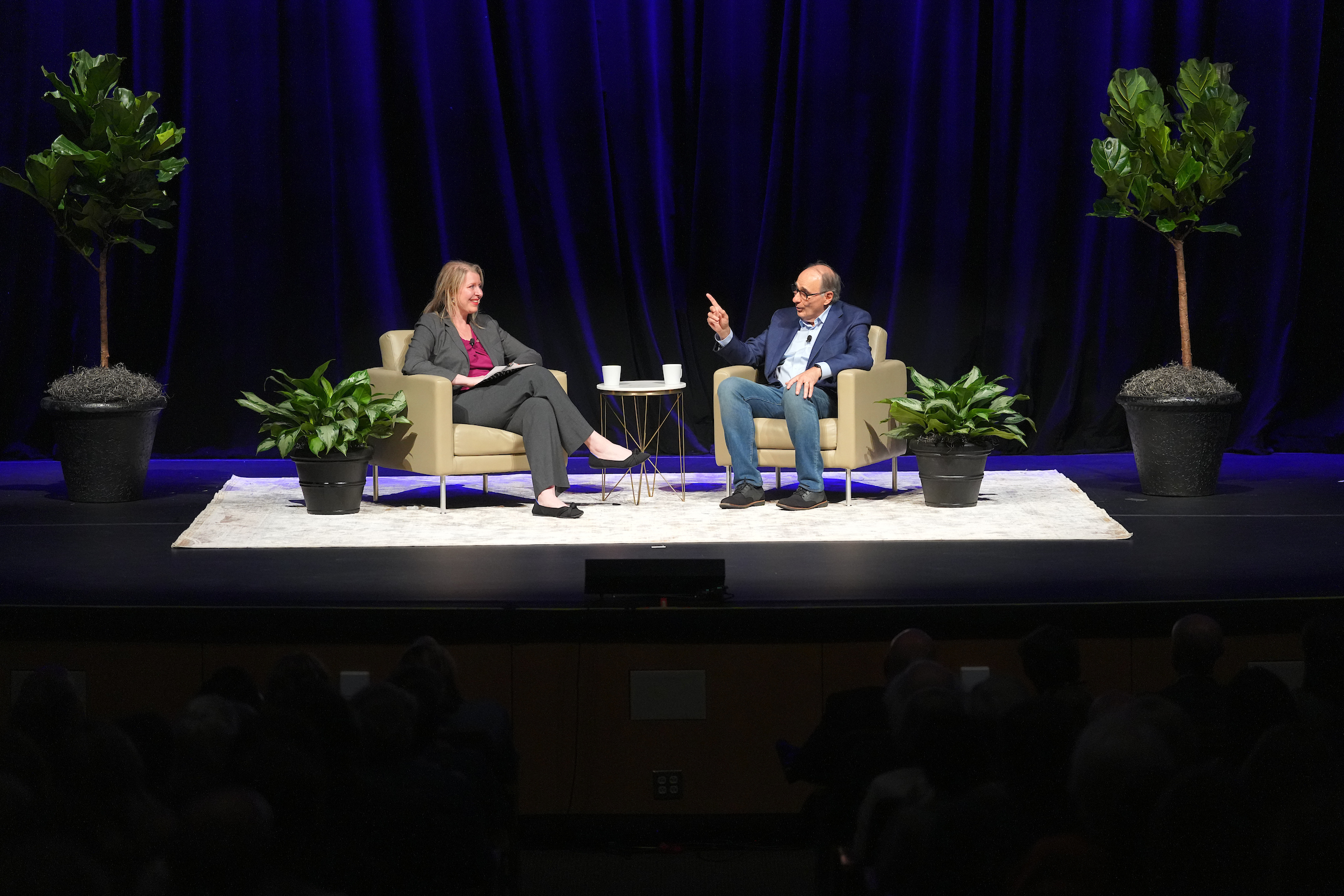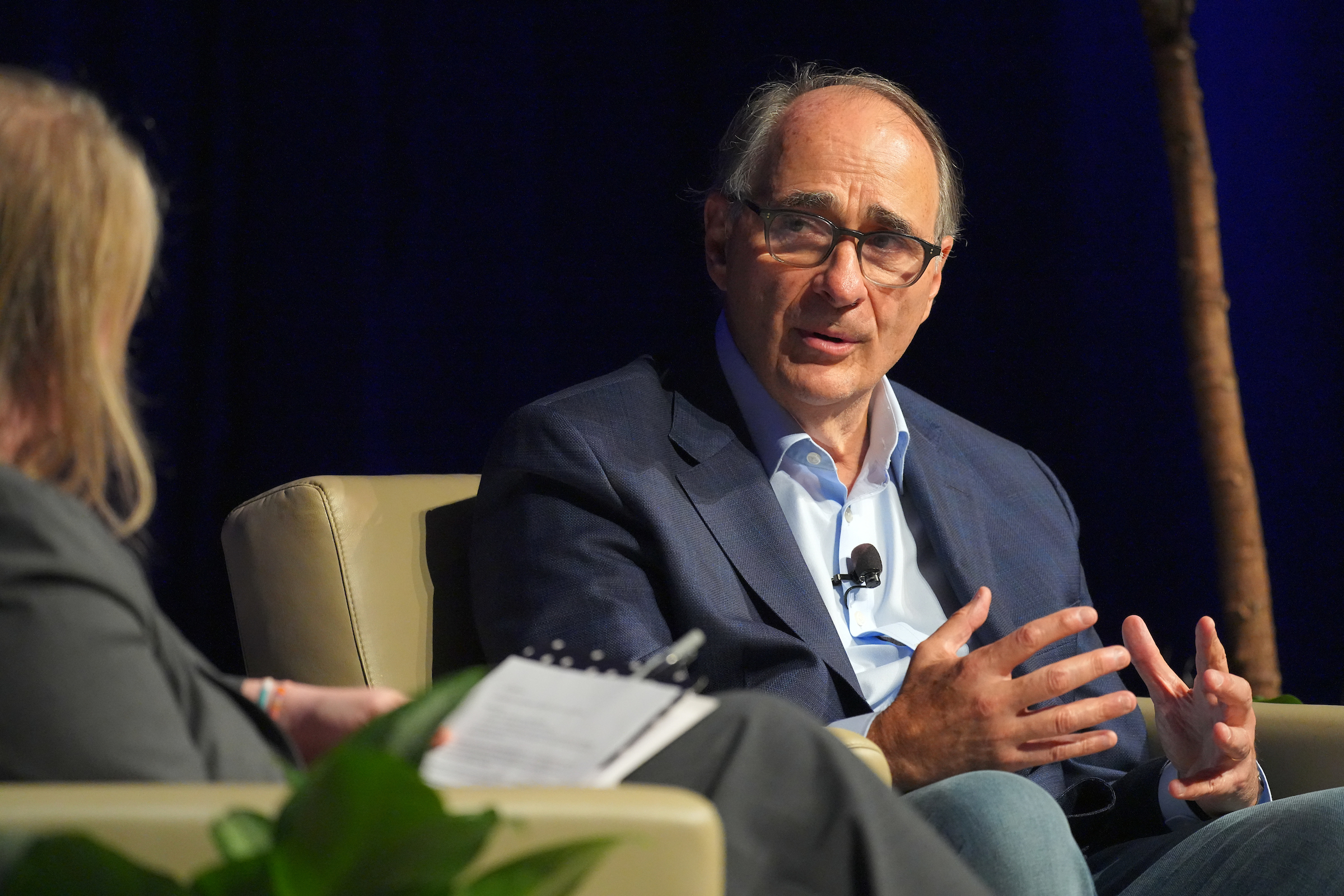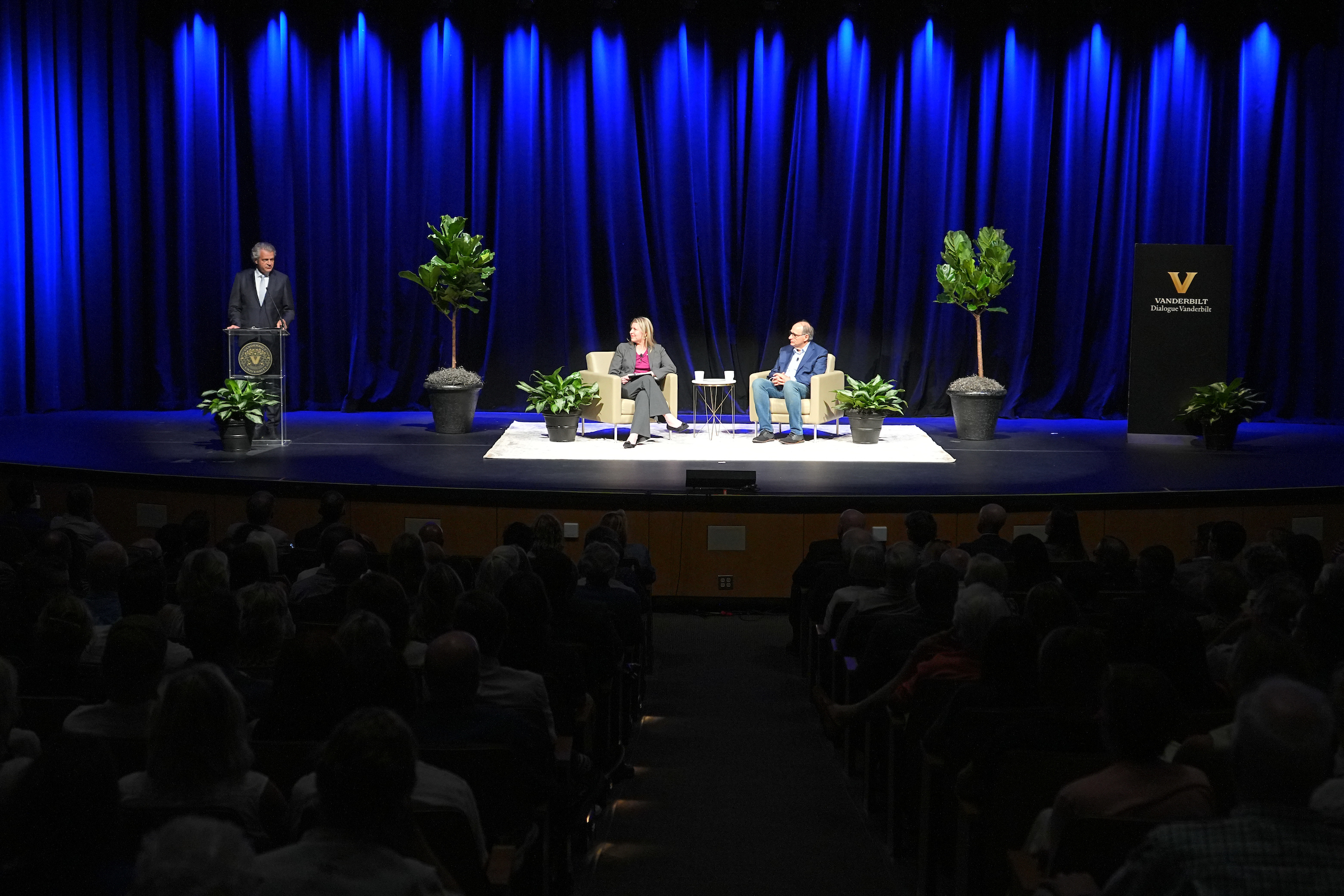David Axelrod, senior CNN political commentator and former adviser to President Barack Obama, came to Vanderbilt Tuesday night to appeal to the community’s better angels: “It’s not about if the red team wins or the blue team wins, or who’s up or who’s down. It’s about what you can do with that power in your hands to help people.”
The Aug. 27 event at a packed Langford Auditorium traced the current state of politics from the Kennedys in the 1960s through today’s contentious contest for the White House. Professor Nicole Hemmer, director of the Carolyn T. and Robert M. Rogers Center for the American Presidency, guided the audience through Axelrod’s career—which holds a front seat to history: working in the administration of the first Black president of the United States.

Harrison McClary/Vanderbilt University
When Obama won the Iowa caucus in 2008, Axelrod recalled, “It was the purest moment I’ve ever experienced in politics. It gave you the sense that anything was possible, and I will cherish that for the rest of my life.”
A signature accomplishment for the Obama administration was the Affordable Care Act, which Axelrod said turned out to be very personal for him. His daughter suffered seizures from a very early age, and her required treatment was complicated and expensive.
When the bill finally passed, Axelrod was alone in his office and heard the cheers echoing through the White House. “I broke down, and I cried,” he said. “And I was embarrassed. I was supposed to be this hardened political guy, and I thought to myself, ‘Why am I so emotional?’ And I realized I was thinking of my own experience.”
Then, when he went to thank Obama for his consistent fight for the bill’s passage, the president simply replied, “That’s why we do the work.”
Axelrod said he put Obama in the same category as another game-changing political family in the United States: the Kennedys. Robert Kennedy, he said, “gave us the sense that together—not just him, but together—we had the power to change the world.”

Harrison McClary/Vanderbilt University
And he sees the possibility for that kind of change in the 2024 presidential race. “The country said again and again, ‘I don’t want this choice. I want something else,’” Axelrod said. Then in late July, President Joe Biden withdrew his candidacy. Vice President Kamala Harris, he added, “has a lot of room to introduce herself as a turn-the-page candidate.”
The event was part of Dialogue Vanderbilt, the university’s signature campaign for “visibly and consistently demonstrating our core values of free expression and civil discourse,” Chancellor Daniel Diermeier told the audience. “The term ‘dialogue’ originates from Greek, meaning ‘through word.’ It reminds us of the power of reason and the force of the better argument.”
Axelrod wrapped up his remarks by celebrating the power of that process: “Democracy is a battle between hope and cynicism. I see hope in this room with these young people. … It’s not about if the red team wins or the blue team wins or who’s up or who’s down, it’s about what you can do with that power in your hands to help people, and I hope we can focus on what we can do for our country, not how we can destroy each other.”
About Dialogue Vanderbilt
Dialogue Vanderbilt was established to continue the university’s intentional effort to consistently advance and more deeply embed its long-held values of free expression, civil discourse and institutional neutrality across campus and beyond. Please sign up for our newsletter to stay informed about future Dialogue Vanderbilt events.
